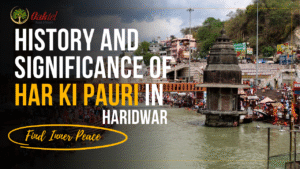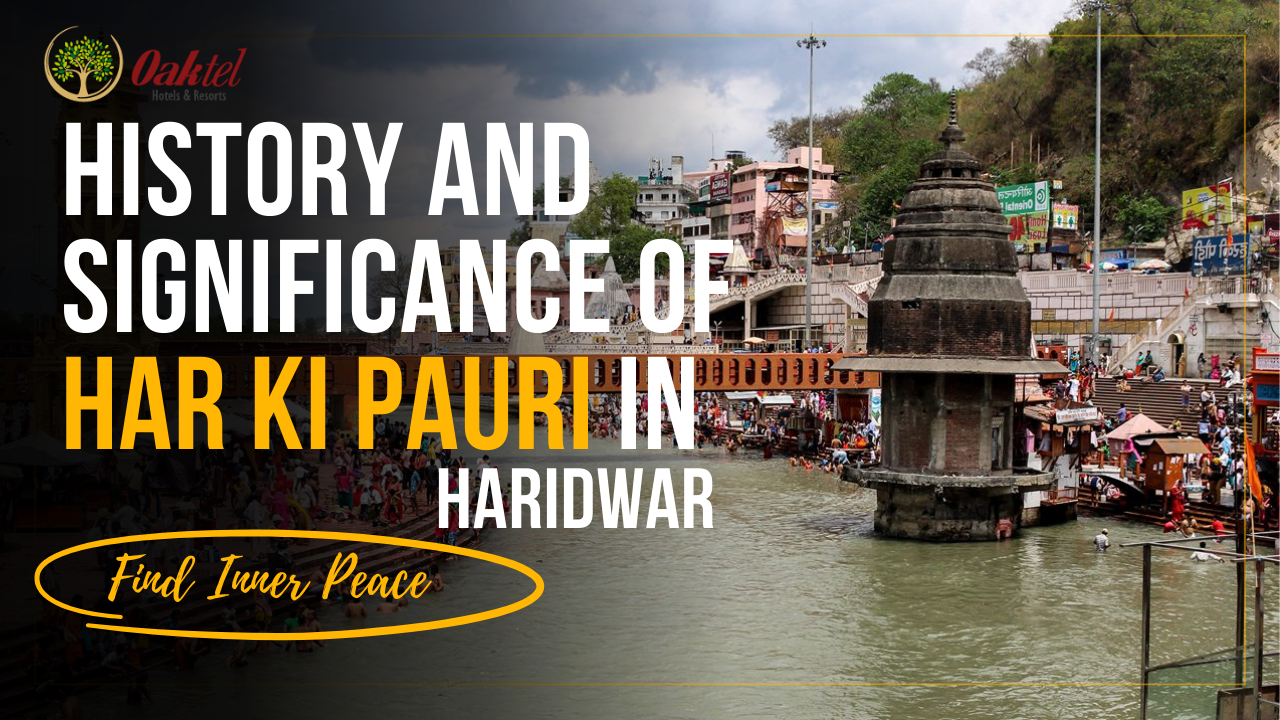
History and Significance of Har Ki Pauri in Haridwar
History and Significance of Har Ki Pauri in Haridwar When people think of Haridwar, one name instantly comes to mind

When people think of Haridwar, one name instantly comes to mind – Har Ki Pauri in Haridwar. It is not just a ghat, not just steps leading down to a river. It is a place where faith meets flowing water, where myths, legends, and culture converge, and where millions of devotees believe their prayers rise directly to the heavens. To put it simply, Har Ki Pauri is the heart of Haridwar, and without experiencing it, a journey to this holy city feels incomplete.
Names often carry hidden stories, and Har Ki Pauri is no different. Literally translated, it means “Steps of God.” Some say it refers to Lord Shiva, while others claim it marks the footprint of Lord Vishnu. The word Pauri means steps, and these stone steps along the riverbank have witnessed countless rituals over centuries. What makes this name so fascinating is that both interpretations coexist—making the ghat special for devotees of both Lord Shiva and Lord Vishnu.
It’s said that once you step onto Har Ki Pauri, you step into a divine zone where the ordinary world seems to fade. For many, this very name is a reminder of the city’s identity as the “Gateway to the Gods.”
According to one belief, Lord Vishnu left his footprint here, which is still preserved on a stone wall. Pilgrims bow before it as proof of divine presence. Another story says Lord Shiva himself visited the spot to bless devotees. With two great deities tied to one place, no wonder Har Ki Pauri in Haridwar holds unmatched reverence.
History, too, adds weight. It is believed that King Vikramaditya of Ujjain constructed the ghat around the 1st century BC in honor of his brother Bharthari, who meditated on the banks of the Ganga. Over centuries, the ghat expanded, rebuilt, and restored, but its spiritual importance never dimmed. Even today, the blend of myth and history makes Har Ki Pauri feel timeless.
For Hindus, bathing in the Ganga is more than a ritual—it’s an act of purification. But doing so at Har Ki Pauri is considered especially sacred. The belief is that taking a dip here washes away sins, grants blessings, and brings one closer to liberation (moksha).
Festivals magnify this belief. During Kartik Purnima, Somvati Amavasya, or Ganga Dussehra, thousands gather to take a holy dip. The scale multiplies during the Kumbh and Ardh Kumbh Melas when millions throng the ghat. Imagine standing shoulder to shoulder with devotees, each person united in devotion, singing, chanting, and waiting for their moment in the sacred river. The energy is overwhelming.
This is why many say, “If you want to truly understand Hindu spirituality, stand once at Har Ki Pauri.”
Even outside festivals, Har Ki Pauri buzzes with daily rituals. Priests perform pujas from dawn till late night, people float diyas into the river, and chants fill the air.
But the highlight, without question, is the Ganga Aarti. As the sun sets, priests clad in saffron robes stand in rows with huge brass lamps. The rhythmic chants, the ringing bells, the glow of hundreds of flames reflecting on the river—it’s pure magic. Pilgrims close their eyes, fold their hands, and feel an unexplainable connection to the divine.
Travelers often describe it as a goosebump moment, something you cannot capture in photos or words. You just have to be there, feel it, and let it sink in.
If Har Ki Pauri is the heart of Haridwar, the Kumbh Mela is the heartbeat. This ghat becomes the central stage during the world’s largest human gathering. Every 12 years, millions of devotees arrive for the holy dip at Brahma Kund.
The belief is that drops of Amrit (nectar of immortality) fell here during the Samudra Manthan, making the waters eternally sacred. Standing in the crowd during Kumbh, you don’t just witness faith—you witness history repeating itself.
Religion may be the soul of Har Ki Pauri, but culture is its body. Over time, the ghat has become a meeting point for saints, travelers, families, and even curious backpackers. It’s not uncommon to see sadhus meditating in a corner, children chasing after floating diyas, and foreigners marveling at the rituals—all at the same time.
Local markets around the ghat thrive too. From spiritual books to bangles, malas, and sweets like pedas or jalebi, the area reflects the bustling culture of Haridwar. The ghat isn’t only about devotion; it’s about the everyday life that unfolds around it.
For today’s travelers, Har Ki Pauri in Haridwar is more than a pilgrimage site—it’s a cultural and spiritual experience rolled into one.
When you’re visiting Har Ki Pauri in Haridwar, staying nearby makes your trip much more comfortable and meaningful. Instead of traveling long distances every day, why not choose a hotel that keeps you close to the heart of the city?
One of the best options is Oktel Shiya Ram, located conveniently near Har Ki Pauri and other major attractions. The hotel offers:
What makes it truly stand out is its perfect mix of comfort and location. You can attend the evening Ganga Aarti without rushing, wake up early for a holy dip, and still enjoy all the facilities of a modern stay. Whether you’re traveling solo, with family, or in a group, Oktel Shiya Ram ensures your Haridwar visit is stress-free and memorable.
The history and significance of Har Ki Pauri in Haridwar cannot be captured in a few words—it’s something that must be felt. From its mythological roots and royal patronage to its role in modern-day spirituality, Har Ki Pauri continues to inspire awe.
For some, it’s about washing away sins. For others, it’s about finding inner peace while sitting by the flowing river. And for travelers, it’s about witnessing one of India’s most powerful spiritual traditions in action. Whatever your reason, Har Ki Pauri will leave you with memories that stay long after you’ve left Haridwar.
Finding a hotel in Haridwar with transparent and fair pricing can be a challenge. At Oaktel, we offer competitive Haridwar hotels price without compromising on quality. We are a distinguished Haridwar 3 star hotel that caters to all budgets, including those looking for a cheap hotel in Haridwar. Our goal is to provide a stay that feels both luxurious and affordable, cementing our status as a truly remarkable hotel in Haridwar. No matter your budget or travel needs, Oaktel promises to be the best hotel in Haridwar for you. Book your stay with us and discover why we are considered the quintessential hotel in Haridwar.

History and Significance of Har Ki Pauri in Haridwar When people think of Haridwar, one name instantly comes to mind
Get the latest updates and offers.